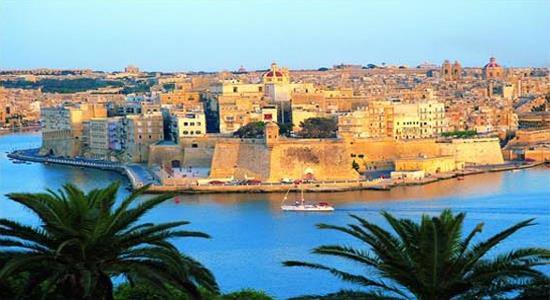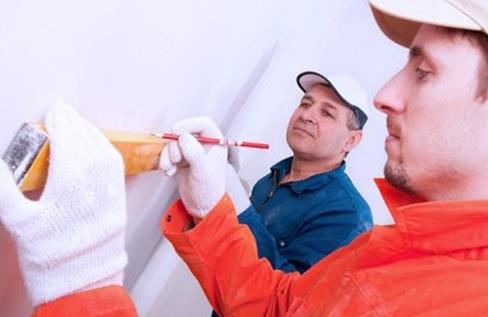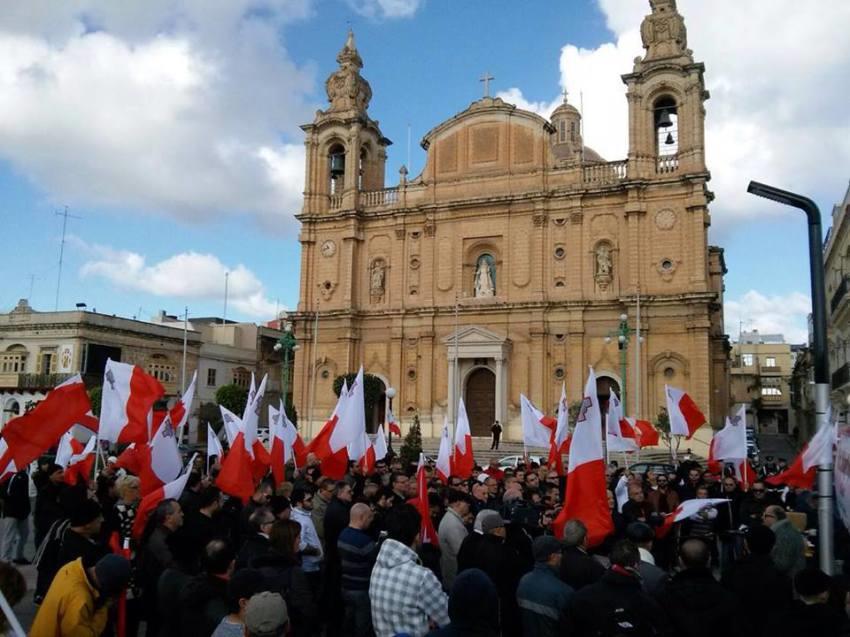How would you describe the party?
It stands for the Maltese – Maltese first. Unfortunately, the political parties have forgotten the population and have adopted unbridled liberalism. Now there has been a rebellion against the last 40 years of liberalism. It is out of control and people are fed up, not just the Maltese, but the whole western world knows that something is wrong.
When the Berlin Wall fell we were given a lot of promises that the world would change for the better, that there would be enormous progress which would benefit everyone. We were told communism was evil, and that evil was dead. We knew that capitalism had its bad points, but we felt it was going to improve everyone’s lives.
But when globalisation started happening, the doors were open with countries where the rights of the worker and the people are not respected, and this had an effect on the whole world. People have noticed that in globalisation the wealth has gone into the hands of 50 people.

The workers in the western world have noticed that they have not fared any better. Their work is no longer dignified, and they work with people who do not respect their rights.
Something has got to give and it has got to give now. There are large movements around the world, and it is useless for people to continue saying that these are racist or Islamophobic movements. This is the reality. People did not just become racist.
If you are a Maltese worker, and you see your work threatened by people willing to work for lower pay, and you see unions allowing this system to continue, you should complain.
Macro-economically, Malta is performing well as a country but the capitalist (even though I own a business, I consider myself self-employed) who has enormous amounts of capital is employing hundreds of thousands of foreigners.
The macroeconomic picture it is showing an improvement, but not at the roots of Maltese society.
The law of supply and demand would say that if the demand for labour is high, then wages should go up dramatically, but all these foreigners ask for lower wages. The higher-ups may say that it is competitive salaries, but there is no parameter for measuring competitiveness, it is just a tool to keep the worker in place.

Pay and housing are the most important things for the worker. Housing has also been affected by the number of foreigners in the country. Prices have gone up and we are told it is because of supply and demand. People now pay €600 or €700 a month. This is a symptom of the smallest country in the world being grossly overpopulated.
We are offering solutions, one of them is that the minimum wage has to be increased to €9.05 an hour and where rent is concerned, we would introduce subsidies on flats with rent between €250 and €550. For a Maltese family, a fair rent should be €250. Even those on normal wages cannot afford to pay the rent. The movement is convinced that if Maltese people are paid well they will work very well. I mean, at the moment 43 per cent of the country is not economically active.

That is mostly the elderly, children and mothers.
Yes it is.
For employers, this may be a shock at first, but this is why we are saying that it will be done over a three-year period. In addition, with the increase in pay, the spending power of the Maltese worker will improve dramatically and so will the domestic economy. The money we give to foreigners goes out of Malta.
What would you say to the recent statistic that shows only 3,000 people are unemployed?
That’s because people have to work, what can they do? I said macro-economically it is looking good but we want a real situation. We are saying that the dignity of the Maltese worker should be fought for.

But foreign investment has brought a lot of employment offering high wages, such as the iGaming industry, financial services and the hospitality industry. You are quite right, but you are talking about the upper segment, we are talking about the worker. I understand and support any foreign person who does the jobs that the Maltese are not able to do.
Do you agree that the government has provided incentives for people to pursue careers in these industries?
Yes, the government is providing incentives, but we are talking about a standard of living for the worker. Do you agree that the cost of living is a problem in Malta?
There are a number of unions and parties who are advocating what you are saying.
We were the first and only ones to come out with this budget proposal, and a lot of the media did not report it unfortunately, but we broadcast these proposals three weeks before the budget. They are all based on an economic study conducted by our economists, and it makes sense because the country is becoming frustrated and claustrophobic.

You say it makes sense, but the recent subsidies introduced in the rental market, much like the first-time buyers scheme, only resulted in an increase in prices.
Because it was not properly regulated.
How would you regulate it, then?
Some of the Maltese are in a private agreement with their landlord, who does not want to show this for tax or other reasons. These people don’t have a leg to stand on when the landlord decides the price: he just says “take it or leave it.” And the government knows what is going on.
Unfortunately, there are people who are genuinely suffering. They cannot afford to get on the property ladder and young couples with a family are forced to go and live with their parents. These are the issues, and this is what we have to talk about; the corruption in this country is ugly. It didn’t start today, it didn’t start yesterday. It is endemic to the country.
In our electoral manifesto we will talk about corruption, unlike the two main parties who squabble amongst themselves. We have been independent for 63 years, and despite all the corruption cases in those years, not one person has gone to prison. I hate corruption because I know how many people are suffering.
What is your solution?
If the establishment – and both parties are the establishment – are not going to change, and offend one another, and yet not one person has gone to prison? There is something very wrong. Our message is honest politics. People need to ask questions of the current parties. This is why we are called the MLPN. The idea that the parties are different to one another has changed.
The party is in the process of choosing candidates and we have a lot of people who want to run. Obviously, it will be hard but, with courage, we will try: someone has to try.
The country needs a third party, whether it us, or Marlene’s, or AD – the country needs a change from top to bottom. We have completely differing ideologies to those of the mainstream parties and we will never agree. But I want the population to give third parties a chance. If you agree with me, then vote for me, but if you don’t, then give your vote to a third party.
Part 2 of this interview, covering the Party’s controversial views on integration, will be published in tomorrow’s edition of The Malta Independent.